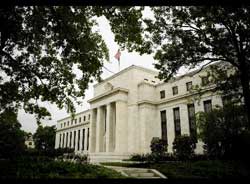by Nilus Mattive – Weiss Research
Tuesday, May 22, 2012
Last week’s column on retirement savings rates elicited a lot of comments and thoughts from readers so I want to take some time today to both recognize some of the feedback I got and also provide some additional context to some of the ideas I discussed last week.
A number of you wrote in to tell me that the fact that about half of Americans aren’t saving anything for retirement isn’t all that surprising — and that it’s largely a result of the current state of our economy.
For example, Keith had the following to say:
“I come from what I think would be described as an average family. I was the third person across all my relatives to go to college and get a degree. My sister followed me, bringing the total to four college degrees across a family of about sixty people. My cousins are all non-degreed blue collar workers.
People Making $40k to $50k Not Saving Money?
“It’s easy for me to look at one of them and criticize their buying decisions. I can afford to buy my kids a fast food burger or pay for them to participate in a club sport. The rest of my clan is not so fortunate.
They, on average, gross in the $40k to $50k range. A few still live in the homes they bought, although three have lost their homes to foreclosure. The net off of $50k doesn’t leave much left for food, transportation to work (most of them don’t own cars — they bus), and rent/mortgage.
I could give a lot more details, but I’m sure you get the point. At these income levels, debt is almost inevitable, unless you had the foresight from your teen years to live as a minimalist; and no one is educated that way.”
Other readers wrote in with similar stories of friends, family members, or co-workers who are struggling these days.
Look, there’s no doubt economic weakness IS a factor for some people. And I acknowledged that in last week’s column.
People Save More Money in Bad Economic Times
However, I also want to show you some numbers that suggest it is not THE factor in all cases … and perhaps not even in the majority of cases.
For example, according to the Employee Benefit Research Institute (EBRI), the percentage of Americans who said they were saving for retirement stood at 66 percent in 2007. I think most of us can agree that year represented a high point in terms of economic conditions, stock prices, and other “feel good” metrics.
So what happened when the economy, the stock market, and other measures of American financial well-being started going down?
Amazingly, Americans started saving MORE for retirement!
Again, according to the EBRI:
72 percent of Americans said they were saving for retirement in 2008, a sharp six-percentage-point increase from 2007 …
The rate increased further to 75 percent in 2009 …
Then, only once some economic measures started to improve a bit in 2010, did the percentage of Americans saving for retirement start to fall back down to 69 percent!
Now, there’s no doubt that unemployment in this country remains much higher than normal, as does “underemployment.” So certainly this drawn-out downturn could simply be resulting in a lot of Americans finally having to dip into their current savings or running out of additional income to sock away for the future.
But if anything, these numbers seem to suggest that people save less when times are good and more when they’re truly bad. In other words, the highest incidence of delayed gratification comes when events scare people into waiting a bit longer.
That brings us back to the people in Keith’s story … as well as many of the other folks you wrote in to tell me about.
I’m still struggling to believe that a family earning $40,000 or $50,000 a year can’t save ANYTHING toward retirement if they really want to.
Especially not when there are so many incentives for them to do so!
Consider the simple fact that anything contributed to a 401(k) plan or IRA account will immediately lower their tax bill — making at least some of those contributions essentially free.
Lots of Government Incentives Available for Savers – Take Advantage of Them
And then there’s an additional tax credit that is currently available to families making $56,000 or less. It’s called “The Savers Credit” (formerly known as the Retirement Savings Contributions Credit) and allows eligible taxpayers to get an additional tax credit of as much as HALF of the money they put away for retirement!
The end result of just these two credits alone means that lower-income American families have every reason — and a lot of actual governmental monetary help — to put at least a little money away every year in their own private investment accounts.
Plus, there are also private incentives like 401(k) matches.
So again, I ask — is it really that half of Americans CAN’T save anything for retirement?
I still think the answer is “no.”
Educate Yourself and Invest the Right Way
Instead, I think it often boils down to simple choices — many of which come back to the inability to delay gratification that I discussed last week.
For example, how much are some non-savers spending on cigarettes … soft drinks … or lavish Christmas gifts? Would they be willing to forgo cable television to put $50 or $80 a month into their retirement accounts? (And yes, for the record, we forego all of these things in my own house.)
Or how many people simply think there’s no point in saving for retirement for some other reason?
Specifically, I’ve heard the argument that the ravages of inflation will make the exercise of saving for retirement futile anyway.
To that, I say it’s simply a matter of picking the right investments.
And that brings me to a larger point — the point that I was really trying to make last week. Namely, that …
The Fact That Many Americans Aren’t Planning for Retirement Often Boils Down
to a Lack of Education on the Topic!
Some folks simply can’t save for retirement because they literally don’t have the means.
But I’m arguing that is the minority of the population … and in most other cases, Americans are choosing not to save, whether consciously or not.
Here’s where education comes in — because the sad truth is that a lot of Americans have never even been taught basic principles of budgeting let alone how our convoluted tax code may actually provide them with “free” money to save for their retirements.
This is why I spend so much time talking about these things in my columns here. It’s why I point out all the problems with our current retirement fall-backs like Social Security. It’s why I discuss certain tax issues, various retirement accounts, and specific investments that can help grow your wealth. It’s also why I challenge us all to think critically about these issues … and to do better, save more, and pass along our knowledge to other people in our lives.
1993 Survey: 20% of People Making $75,000+ Not in Company Retirement Plans
Lastly, I want to emphasize the fact that I’m not looking to single out lower-income Americans when I talk about these issues.
There are countless stories and studies about more affluent Americans showing a similar inability to plan for retirement or live within their (higher-than-normal) means.
Heck, an old survey from the NY Fed showed that even back in 1993 20 percent of families making more than $75,000 were still not participating in the company-sponsored retirement plans that were available to them. And anecdotally, I can tell you that there are plenty of higher-income folks that could be saving lots of money right now but aren’t.
So again, if you know anyone who’s not saving for their retirement right now, please at least have a frank talk with them about the issue … because even if they are truly unable to save anything right now, a working knowledge of the subject will only better prepare them for the future.
Best wishes,
Nilus







